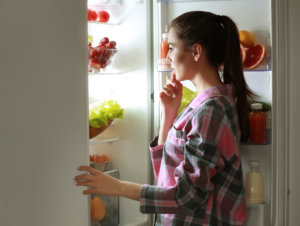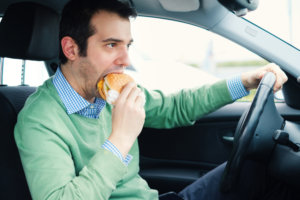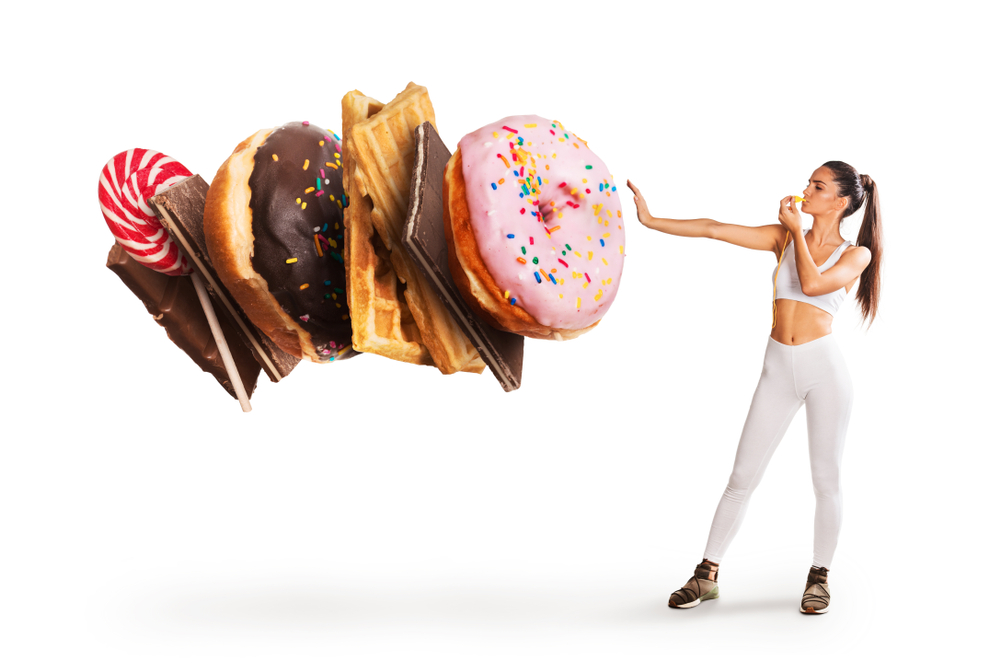Losing weight can feel like a huge challenge. Even when people carefully follow the diet plans that have been laid out for them, they often find that they are still not losing weight or not losing weight as rapidly as they desire. For many people, this can be frustrating and can lead them to give up.
Giving up is not the answer! It may simply be that they need to change their diet plan, or it could be that they are still indulging in bad habits that can prevent them from losing the weight they desire. Even if you provide a person with a diet program that will work, the best diet plans won’t work if people can’t let go of their bad habits. The worst part is that often times, many people don’t even realize they are engaging in these bad habits!
On the NJ Diet plan, we are here to help you every step of the way. Our customizable program helps you keep the fat off and stay healthy! Every factor regulating metabolism, appetite, fat storage & fat burning is carefully energetically tested for success. Using DNA Testing over 40 different factors are assessed genetically to make sure you succeed. We personalize natural solutions and supplements for every individual, and our program includes full supervision by nutritionally certified personnel.
To help you determine whether or not you have any bad eating habits, we’ve listed some of the worst triggers that may derail your weight loss plan:
Avoiding The Bad Habits That Affect Weight-Loss
Skipping Breakfast
We often hear that breakfast is the most important meal of the day, but with our busy schedules, you may decide you don’t have time to eat. However when you skip meals, your metabolism begins to slow. By eating breakfast, you get the boost of energy you need to take on your day – and without this boost, chances are you’ll just overeat later. Studies have shown that those who skipped breakfast gained significantly more weight over a two-year period than those who ate a morning meal. Even if you don’t have time to sit down and enjoy your breakfast, it’s a good idea to have healthy breakfast foods you can consume on the run, such as whole fruit, yogurt, protein bars or a smoothie.
Mindless Eating
If you’re watching TV, sitting in front of a computer, or playing video games, mindless snacking in front of the screen can be something to worry about. In addition, the larger the plate or bowl you eat from, the more you unknowingly consume. In one recent study, moviegoers given extra-large containers of popcorn still ate more than those snacking out of smaller containers holding the same amount. Try swapping out your large dinner plate for a salad plate, and never eat straight from a container or package, to control mindless eating. In addition, take frequent breaks when you’re in front of the computer — get up and walk around the room or office every 15 to 30 minutes and remember to carefully monitor what you consume to you don’t overdo it.
Not Sleeping Enough
Not getting enough sleep can affect your weight-loss efforts. In fact studies have shown that those who slept five hours or less a night were more likely to gain weight than those who slept seven hours or more. Try to establish a routine by going to bed and waking up at about the same times every day, even on weekends. Keep your room dark and comfortable, and avoid TV or computers for at least an hour before bed. The better you sleep, the better it is to keep your diet plan on track.
Not Measuring Portions
Most of those who are on a diet plan become aware of what a “healthy portion” is, however those same people may underestimate how much we’re actually eating. For example, a six ounce piece of skinless chicken is healthy and low in calories, but if people forget to measure and “guess” at their portion sizes, they leave a lot of room for error. To make your diet successful, don’t guess about how much you’re eating. Use cups, tablespoons, and even a food scale to know exactly what you’re eating and whether or not it is correctly portioned.
Indulging In Midnight Munchies
Eating late at night is a huge “no-no” when watching your diet. When you eat food in the late evening hours and then go to sleep, that food that you just consumed is not burned off and will be stored as fat – not to mention a full stomach can prevent you from having a restful night of sleep. It is recommended that you try to stop eating about 6 hours before you go to bed. Believe it or not, by doing so you may see a positive difference in both the amount of calories you burn and the amount of fat you lose.
Emotional Eating
You had a bad day and when you get home, you toss your diet plan out the window and eat the ‘comfort’ food that makes you feel better -emotionally, but not physically. Of course, this is not a good diet strategy, and eating food as a coping mechanism is a tough habit to break. A number of studies confirm that emotions, both positive and negative, can cause people to eat more than they should . A good strategy is that if you’re stressed, take a walk instead of eating or call a friend who will be keep you on track.
Eating Too Quickly
Whether you’re snacking or eating a meal, try not to eat too fast. Your brain doesn’t signal that you’re full until about 15 to 20 minutes after you’ve started eating, so by giving your brain time to catch up with your stomach, you’ll wind up eating less. To slow down your eating, physically put your fork down between bites, take smaller bites, and be sure to chew each bite thoroughly. Also, drinking water throughout your meal will help you slow down and feel fuller as you go.
Unhealthy Snacking
Snacking is a bad habit many of us are guilty of. And while healthy snacks are perfectly fine, snacking often — on high-calorie foods that are full of empty carbs — is one habit that needs to be eliminated. Try to control snacking by keeping only healthy snacks within reach, such as hummus, carrots and cucumber slices, air-popped popcorn, yogurt, and almonds. Stocking your desk or pantry with these healthy options will help you to avoid the unhealthy treats.
Drinking Calories
Don’t waste your daily calorie intake on drinking things such as soda, juice or other nutritionally-empty beverages, which can wreak havoc on your diet. To avoid the wrong drink choices, stick with water for health benefits. Set a goal for daily water intake, make sure you always have your water bottle handy.

Healthy Habits To Aid In Weight Loss
Weight loss and a healthy diet is all about making small changes that you can live with forever. If you incorporate simple changes into your lifestyle, you’ll begin to see how they can add up and aid in your weight loss.
Here are the healthy habits to enhance your weight-loss and wellness goals:
- Reevaluate Your Eating Habits – Are you eating late at night, tasting while cooking, snacking along with your kid’s meals? If you identify a few negative eating behaviors, you can make the changes that will add up to big calorie savings.
- Plan To Succeed – Pack healthful snacks for the times of day that you know you are typically hungry and can easily stray from your eating plan. You need a strategy for your eating, and that means planning ahead.
- Don’t Food Shop When Hungry! – It’s a recipe for disaster to go into the grocery store when you are hungry. Shop from a prepared shopping list to avoid impulse buying. The key to success is by simply stocking healthy food in your pantry and refrigerator.
- Eat Meals Regularly – Figure out the frequency of your meals that works best in your life; regular meals at set times help prevent bingeing.
- Don’t Eat On The Run – Eat Sitting Down – Food eaten in the car, out of packages and while standing is a recipe for disaster; in fact, you can wind up eating more that way. By sitting down and consciously enjoy your meals you will find yourself more satisfied.
- Savor Your Food And Eat Slower – Try resting your fork between bites, drinking plenty of water with your meals, and enjoying every savory bite.
- Treat Snacks Like “Mini-Meals” – instead of empty calories and unsatisfying snacks, turn them into ‘mini-meals.’ The most nutritious snacks contain complex carbohydrates and a small amount of protein and fat.

Trading Bad Habits For Good Ones: How To Snack Properly
Losing weight does not mean that you have to completely give up on your love of snacking. Instead, it just means that it might be a good idea to swap out those potato chips and cookies for some healthier, lighter snacks that will be kind to your waistline while still satisfying your appetite.
Air-Popped Popcorn
If you love eating popcorn (but don’t like the exorbitant amount of fat and calories), switch to air-popped. Air popped popcorn uses no oil or butter, and a whole cup will net you fewer than 100 calories and will taste absolutely delicious!
Veggies With Hummus Or Salsa
Another good option is to pair your favorite sliced veggies, such as cucumbers or carrots, with a tablespoon or two of protein-packed hummus. Hummus will keep you feeling full and give you a nutritional boost. Vegetables are very low in calories, and if you finish off your hummus portion, a few tablespoons of low-calorie salsa can easily satisfy as well.

Fresh Fruit
When you’re feeling hungry in between meals, fresh fruit is always a good option. Fruit provides a little sugar to satisfy your sweet tooth and a nice amount of energy to help you throughout the day. Just make sure you’re eating fresh fruit, not the canned products that is packed in highly-caloric syrup or fruit juice. When enjoying fruit, please note to control your portion sizes. Fruit does still have calories thanks to its natural sugars, so stick to just one serving per snack.
Yogurt
A great way to satisfy a sweet tooth is with yogurt. Greek yogurt is preferred since it contains lots of protein and nutrients, but any yogurt works as long as it doesn’t have any added sugar. With so many awesome yogurt brand and flavors to choose from, you can enjoy a snack that feels more like a dessert.
Nuts
A handful or portion size of nuts is a perfect snack suggestion. Nuts can be high in calories, but they power you up and help you stay full, making them well worth their calorie content.
Protein
If you are really hungry in between meals, there’s no reason you can’t eat items that are typically reserved for ‘meals.” Grilled chicken breast can help cut down your hunger, fill you up with protein, and keep you on target. A low-sugar, nutritionally balanced protein shake is another great option, as they can fill you up and are quick to prepare.
Dark Chocolate
Dark chocolate is a great snacking option. A high cacao percentage (75% or greater) dark chocolate bar is a decent sweet-tooth option and will also satisfy your sweet tooth and chocolate cravings.
* * * *
As you can see, you don’t have to give up snacking to be healthy; you just have to make sensible snacking choices!
At NJ Diet, our program is not only aimed at promoting healthy weight loss, but aims to improve your total wellness — where the side effect is weight loss, but the end result is better overall health and well being!
Our program is a hormone healing diet for 40 days allowing your body to heal itself inside out. We help monitor this process every step of the way. You come into our office every 10-14 days to make sure you are burning fat and not losing water. Our 4 component approach that makes it possible to lose 20-40 lbs. or more of fat in only 40 days!
Save $72 off Initial Evaluation and Consultation price of $99
Register online today and your visit will cost ONLY $27!
We welcome the opportunity for you to have a consultation with us, so register online now!







